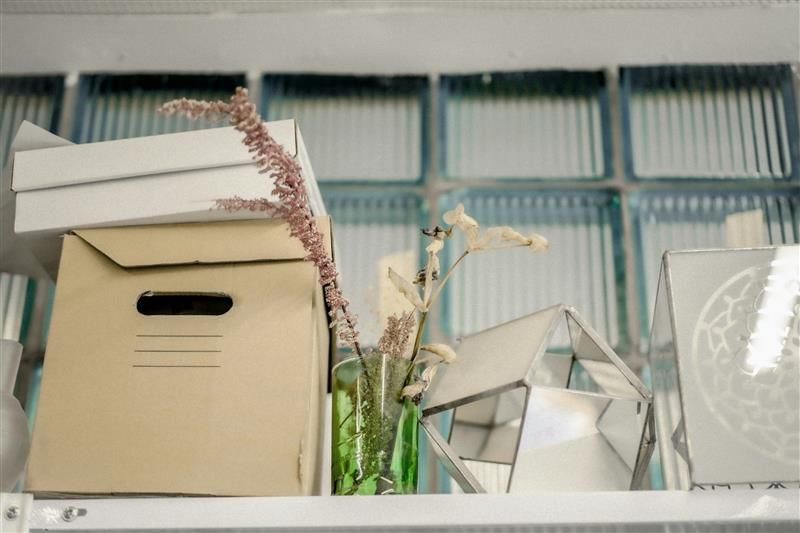
HOW TO KEEP CONFIDENTIAL DOCUMENTS SAFE
Almost every business has control over confidential documents of some kind. Whether these documents concern their own business affairs or those of others, the risks associated with them going missing cover a range of criminal offences and penalties (such as business fraud). Furthermore, those who hold data on behalf of their customers or clients will need to make sure that they are compliant with the impending EU-wide GDPR if they are to avoid further penalties.With regulations on the horizon, it is more important than ever to safeguard your documents. But there is still time to sort out your safety and security. In what follows, we’ll be taking you through some of the best ways of keeping confidential documents safe throughout your company by implementing preventative measures and data protection initiatives.
IMPLEMENTING COMPANY POLICIES
Implementing company policies helps lay the foundations of data protection in your business. Safeguarding initiatives need to be written into the fabric of your company, each of them understood and followed by all of those within it. Company policies take many different forms, but some examples which are conducive to data protection may be a document retention policy, or a clean desk policy. The policies you choose are up to you, and could be more general.Whichever you opt for, such policies should always be accessible and understandable. If not, employees may have a hard time taking the measures necessary to ensure a safe and secure information culture within your business. New employees should be made aware of your company policies and trained appropriately. Likewise, when you create or change a policy, employees that the policy applies to should be informed and educated. It is the responsibility of employers to be clear and transparent about all policies relating to data protection if they wish to see significant results and cultivate a fully safeguarded business.
TRACKING CONFIDENTIAL DOCUMENTS
Do you know exactly where all the confidential documents that exist within your company are being stored at any given time? Do you have a system or data log in place by which you can see where such documents are being stored? If not, you cannot know for certain whether or not all you confidential documents are in fact secure. That is, you cannot know that a document has gone missing if you don’t know where it is in the first place!Any functioning data log should give access to those who require access (i.e. employees) allowing them to locate physical and digital copies of necessary documents without allowing those who should not have access to use the system. When outsourcing documents to a document storage facility or using a physical filing system, you should be keeping track of documents so that authorised parties can find and retrieve the necessary documents.On the other hand, when storing documents digitally (e.g. on the cloud or a shared hard drive) you need to be keeping a record of both the hardware and software being used to hold those documents at any given time. While somewhat more difficult than locating confidential documents within a physical system, it is equally as important if you want to keep your confidentials within the company and avoid making yourself prone to criminal offences.
CONTROLLING ACCESS TO DATA
But how exactly do you make sure that only the right people can locate and access confidential data within your company? To ensure that your documents are in safe hands, you need to be keeping an eye on who can access them. Around 75% of data breaches are due to insider threats, so no matter how much trust you place in your employees it’s essential that you control their access to the most confidential documents such as sensitive communications, business strategies, and intellectual property. Employees should only have access to documents relevant to their duties and nothing more. It is your job to minimise the risk of data breaches, all risks considered, so think twice before you share potentially sensitive data with your employees.Whenever someone changes their company role internally or leaves the company altogether, always remember to change (or remove) their access rights and passwords accordingly. Employees who have changed roles should be restricted access to documents the no longer need to see and employees who leave should be completely removed from your systems. Indeed, even in cases where you trust the employee and consider the loyal to your company, there is nothing to be gained from keeping their access. If in doubt, always err on the safe side!
MITIGATING EXTERNAL THREATS
The safety of your confidential documents extends far beyond your physical workplace out into the big bad world. That is, access to sensitive information should not only be restricted within your company but also safeguarded from those outside your company. With modern companies, it is becoming increasingly common for employees to work from their personal devices or take their work devices home. Sometimes, workers may even take physical documents out of the office when working from home or going to meetings. This presents a risk to confidential documents as they are now open to the risks posed by forces external to your company.When such information leaves the office, there is very little that an employer can do to control where it goes and who has access to it. At that point, it’s mainly the responsibility of the person who holds the document. However, employers can work to mitigate these risks by educating their workforce on the risks of taking confidential documents outside the office and training them on keeping those documents safe. It should be abundantly clear to all employees that it is not safe for anybody outside of the company (including close friends and family) to have access to sensitive company data. Alternatively, companies could keep company documents and devices within the confines of its offices, though this is somewhat less practical in the modern workplace.
ELIMINATING ALL RISKS
A large part of reducing the risk of a confidential data breach is making sure that documents only exists for as long as they need to. In other words, a confidential document that is no longer needed poses a risk when kept for longer than necessary. If a physical document provides no purpose or value to your business than it should be destroyed – or if it’s a digital document, securely deleted. Make sure that you’re aware of the regulations surrounding the disposal of old hard drives and that physical documents are destroyed to a point where they cannot be read.By outsourcing your confidential documents to companies like Flexible Storage Solutions, you can not only guarantee that your data is in safe hands – stored in secure vaults with fireproof boxes and protected by 24hr CCTV – but also they it is being tracked through our document management system and safely destroyed when necessary using industrial grade shredders and pulverisers. This completely removes the risks associated with internal physical storage systems while making the management and destruction process more efficient..Our priority is to meet the long and short term needs of your company while keeping all your documents as safe and secure as possible. Feel free to get in touch to make an appointment and discuss your requirements with one of our friendly storage consultants.








